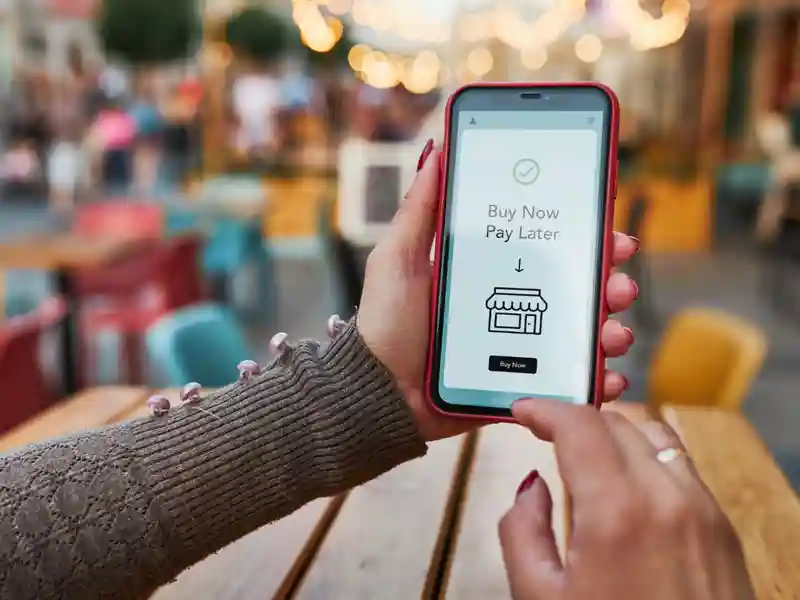
Buy Now Pay Later (BNPL) has become the new frontier in consumer financing. While it can make handling a big expense easier — like replacing a major appliance — it may also lure some consumers into impulse luxury purchases. And perhaps even more problematic, people are beginning to use BNPL for everyday necessities like groceries and household essentials.
When you check out on an e-commerce site, you may see a notice offering to let you pay in four installments with no added interest. That’s BNPL — it’s available through companies including Klarna, Affirm, PayPal, Afterpay and Apple. It’s convenient, and most servicers require only a soft credit check to qualify the purchaser, so your credit rating likely won’t be affected. But in addition to the benefits, it’s also important to consider the risks associated with BNPL before you make use of this payment option.
Why You Might Use BNPL
BNPL gives consumers a convenient way to stretch out payments. It may be especially useful for those who can’t qualify for credit or who’ve maxed out their credit cards. If you pay the balance in full and on time for each installment, usually four in total, there’s typically no interest due. That might be very attractive to some, especially given that credit card interest rates are currently higher than they’ve been in decades.
Risky Business?
Sounds great, right? Borrow money and potentially pay zero interest. Of course, there are downsides — a lot of them. BNPL might not help you build credit, as many providers don’t report purchases and payments to the credit bureaus. But if you miss payments and the overdue amount is sent to collections, they will report that, potentially lowering your credit rating.
Many BNPLs encourage you to link your bank account to their app and authorize auto withdrawals for their payments. Depending on the timing of those withdrawals, this could leave your bank account short when it’s time to pay for rent or mortgage or groceries.
Like credit card issuers, some BNPLs make money from late fees. Klarna and Afterpay are among them (currently charging $7 or $8 or 25% of the loan amount, whichever is less), while PayPal and Affirm do not charge late fees at this time.
BNPL can make it easier to say “yes” to purchases you can’t really afford or don’t need. A 2024 Bankrate study shows that 56% of BNPL users reported having at least one problem using the services. Overspending was the biggest issue (29%), followed by missing payments and difficulties with refunds. Consumers who have multiple BNPL accounts may find themselves in over their heads very quickly.
This is especially true for those who turn to BNPL to buy necessities — and analysts say that consumers already struggling to pay their bills can rack up significant BNPL debt without realizing it. A UC Irvine, Stanford and Singapore Management University study, for example, found that BNPL users accumulated at least $176 more per year in overdraft fees, credit card interest and late fees after they began using these payment services.
The Verdict?
BNPL can be a useful addition to your financial toolkit — if used responsibly. It could allow you to replace the refrigerator that just stopped working without eating up the limit on your credit cards or using expensive merchant credit. However, its overuse has attracted attention — in fact, a recent rule issued by the Consumer Financial Protection Bureau brings BNPL services under regulations similar to those for credit cards and standard loan providers. Still, it’s up to you to decide if you really need that Apple Watch that you can’t quite afford right this minute.
Sources
- Struggling consumers use buy now, pay later services for everyday necessities — even groceries
- Study: Buy Now, Pay Later Use Declines for Third Straight Year
- 'I am so scared of them now': Burned from overspending, some 'buy now, pay later' users warn others away
- How Popular Buy Now, Pay Later Services Compare
- Survey: 56% of buy now, pay later users have experienced issues like overspending and missing payments
- CFPB Takes Action to Ensure Consumers Can Dispute Charges and Obtain Refunds on Buy Now, Pay Later Loans